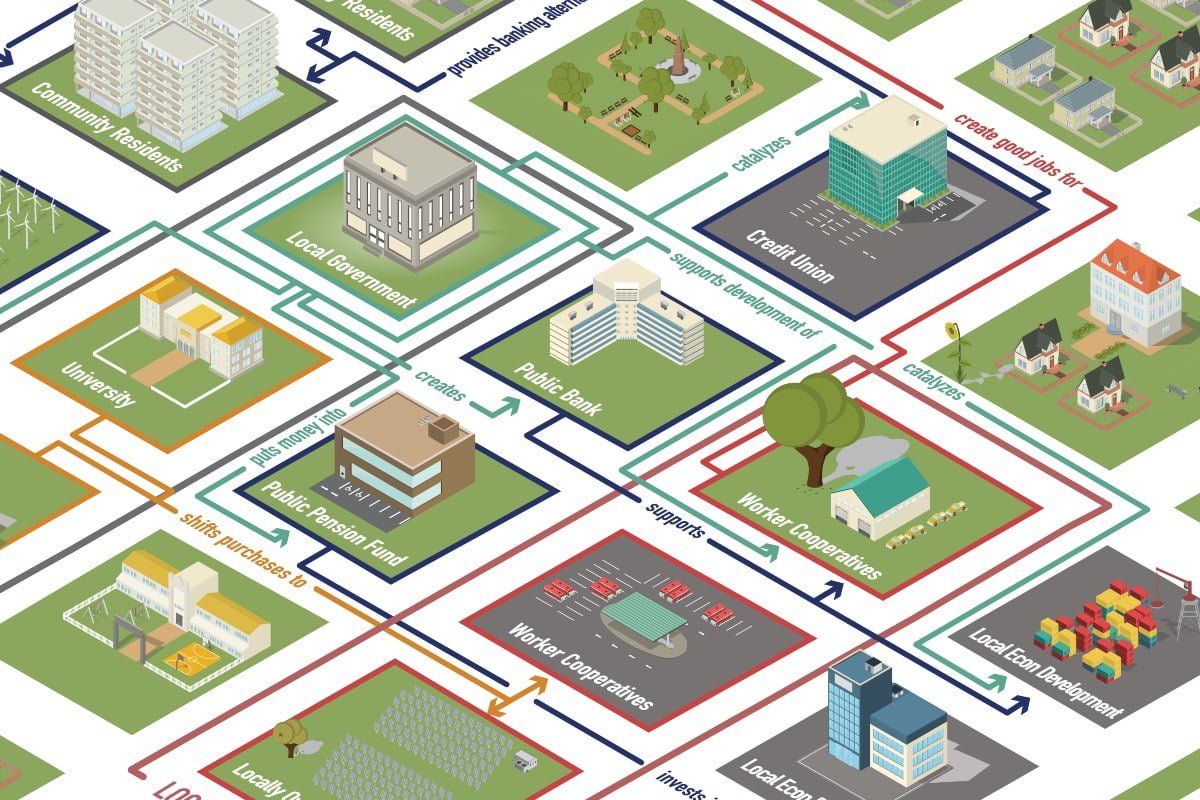The ‘Preston Model’ is being pushed by some on the left as a way for local councils to manage in an age of austerity and build ‘municipal socialism’. But instead, Labour must fight the cuts and nationalise the monopolies.
Over the last nine years, local authorities have faced ever more brutal cuts and austerity measures. From the £16 billion cut in core services to the £531 million lost from the public health budget, councils are being squeezed dry by this Tory government.
New reports show that Labour councils in working-class areas have been hit hardest by the cuts – far more than their Tory counterparts. Areas such as Liverpool, Salford and Rochdale have been hit hard, while Tory councils such as Oxford have actually managed to gain small increases in their budgets.
No wonder, then, that Labour councils and party members are looking for alternatives at a local level to protect the most vulnerable in society.
What is the Preston Model?
 One suggestion that has been heralded on the Labour left is the ‘Preston Model’. This is claimed by its supporters to be a way of building ‘municipal socialism’; a model fit for the 21st century that meaningfully addresses the devastation of Tory cuts.
One suggestion that has been heralded on the Labour left is the ‘Preston Model’. This is claimed by its supporters to be a way of building ‘municipal socialism’; a model fit for the 21st century that meaningfully addresses the devastation of Tory cuts.
In Preston, Lancashire, the council is using their budget to invest locally, awarding contracts to local businesses. This is sometimes referred to as ‘community wealth building’.
Matthew Brown, the council leader, says this is a means of devolving power from Westminster and building “people power”, by letting local business have a say in the running of the economy.
For instance, by 2018, 18% of the council’s procurement budget was being spent in the city – an increase of 13 percentage points from 2013. The council is also supporting the development of cooperatives, including a local credit union and an energy company.
This model has received praise from both Corbyn and McDonnell for its “innovation”. The council now wishes to push further forward with a community bank.
Challenging the status quo
Preston is certainly leading the way in involving small businesses and workers in the running of their local economy. The model has been praised for redressing the inequality between London and the rest of the UK. Councils such as Manchester and Birmingham are following suit, and have also increased the share of their procurement budgets that are spent locally.
But while the Preston Model might help support some local businesses and cooperatives, it does not fundamentally address the broken status quo facing working-class communities across the country.
Isolated cooperatives and small-scale local reinvestment do not fundamentally challenge the exploitation of the big banks and major monopolies that dominate our economy and our lives. As long as these big monopolies remain in private hands, producing for profit, cooperatives will be forced to compete with them in the capitalist market, and workers will continue to face a race to the bottom.
Regional inequality, meanwhile, cannot be fixed simply by funding small local companies. Despite some minimal job creation and elements of democratisation within cooperatives, the benefits are marginal. We cannot tinker at the edges of capitalism.
Fight the cuts
 Nor does the Preston Model end austerity, which hits the most vulnerable hardest. This attempt at localised Keynesianism doesn’t change the fact Preston is still having to implement Tory cuts to core services, with frontline services that remain at breaking point.
Nor does the Preston Model end austerity, which hits the most vulnerable hardest. This attempt at localised Keynesianism doesn’t change the fact Preston is still having to implement Tory cuts to core services, with frontline services that remain at breaking point.
Lancashire County Council has announced plans to roll out £77 million in cuts to frontline services such as education and disabilities services, all while raising council taxes by 3.99%.
This austerity is the result of the crisis of capitalism, and can only be stopped by funding public services through the nationalisation of the banks and the key levers of the economy.
Instead of the Preston Model, we need to think about a ‘Liverpool Model’, based on the militant anti-cuts stand taken by the Liverpool City councillors in the 1980s. Labour councils should refuse to implement cuts and organise with the trade unions to build a national campaign capable of bringing down the Tory government.
Bring back Clause IV
 John McDonnell has rightly called for economic policies that will bring about a “permanent and irreversible shift in the balance of wealth and power” in society. But this can only be done on the basis of a bold socialist programme.
John McDonnell has rightly called for economic policies that will bring about a “permanent and irreversible shift in the balance of wealth and power” in society. But this can only be done on the basis of a bold socialist programme.
Cooperative strategies certainly show that workers are capable of running the economy. But ultimately they are just ‘pockets of socialism’ in a sea of capitalist competition and exploitation, doing little to address the most brutal cuts to frontline services.
Workers’ control and management must form the backbone of a socialist alternative. But this can only be achieved on a permanent basis alongside a socialist plan of production, involving the nationalisation of the banks and big monopolies.
This idea was encapsulated in the words of the original Clause IV, which promised workers “the full fruits of their industry” on the basis of the “common ownership of the means of production, distribution and exchange”. Bringing back Clause IV is therefore an important step forward that Labour activists should fight for.
Attempts to create alternative economic models within the framework of the broken capitalist system is like rearranging the deck chairs on the Titanic. We must set our sights higher than the Preston Model and be bold in calling for the nationalisation of the banks and monopolies under workers’ control.






